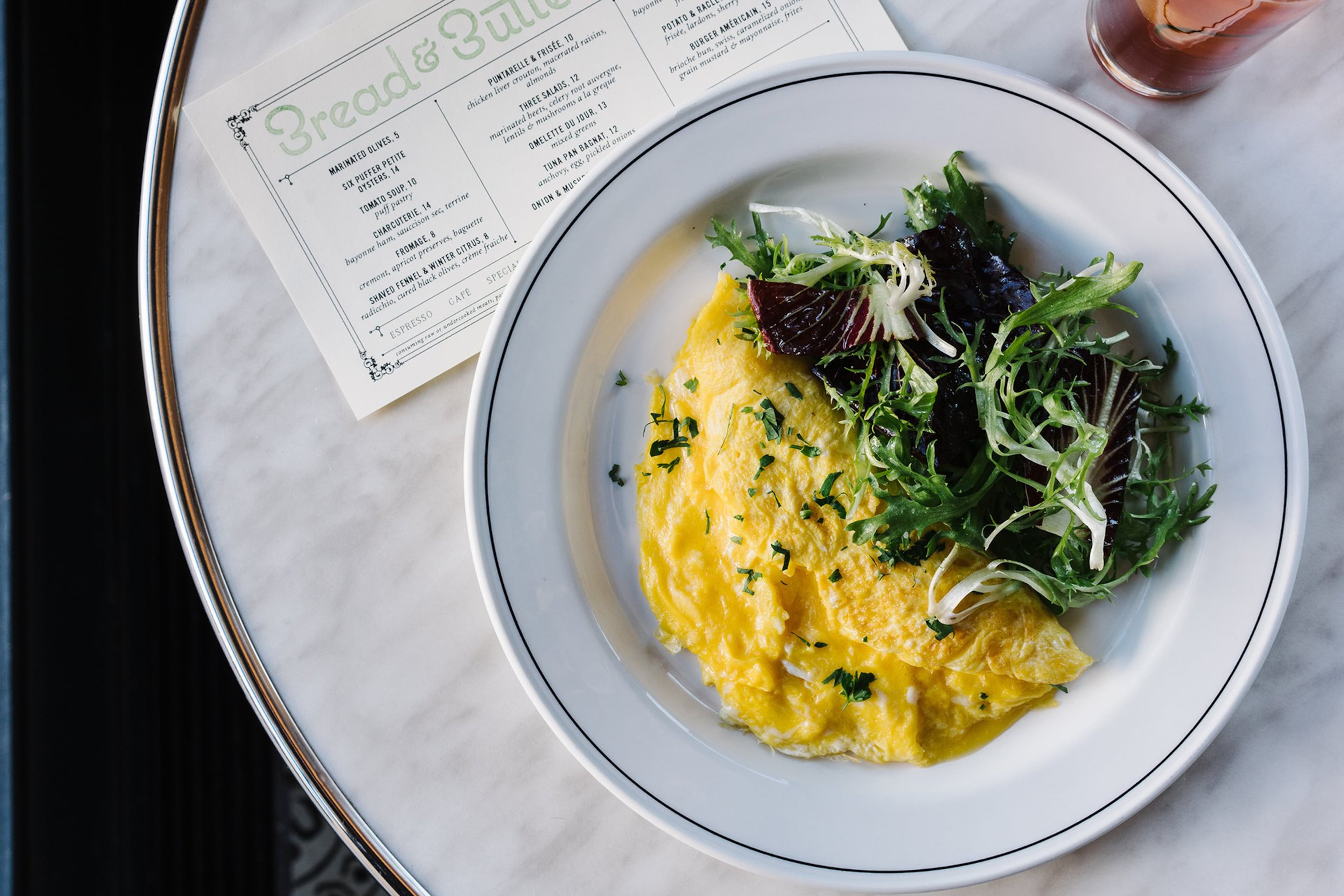A new wave of French restaurants hits Atlanta

French dining long has been a mainstay in Atlanta, with restaurants such as Anis, Babette’s, Atmosphere and Bistro Niko serving their neighborhoods for decades. But, a new crop of restaurants has turned the spotlight back onto French food, illuminating many facets of that country’s culinary traditions.

Inman Park's Bread & Butterfly re-creates the Parisian all-day bistro experience, while Saint Germain in Ponce City Market turns out note-perfect croissants, macarons and chouquettes. The cozy new Cabbagetown cafe Petit Chou pulls in French dishes for its brunch and lunch menus, while Le Bilboquet in Buckhead is as glittery as they come.

"There's a little bit of misconception around French food," said chef Nick Leahy, who recently opened the restaurant Aix, and its companion bistro Tin Tin, on the Westside. He's hoping to broaden Atlanta diners' perspective on what "French food" can mean. To do that, Leahy draws primarily from the south of France, where he spent much of his childhood visiting family.
“It’s not just steak frites, heavy butter and rich sauces,” he said. “Provencal food is lighter, more of an ocean influence. Life down there is like that. It’s much more lemon and garlic and olive oil, and an international influence, thanks to people coming from Italy, Spain and Northern Africa.”
Atlanta’s thriving French scene is in line with a growing national interest in the cuisine, seen in the likes of such noteworthy restaurants as New York’s Le Coucou, Grand Cafe in Minneapolis, and Canard in Portland, Oregon.
There's an easy explanation for the appeal of French cuisine — at least, according to chef Remi Granger, who helms the kitchen at Poncey-Highland's the Brasserie at Bazati, but grew up in France's Loire Valley region. "Some people go one time to a restaurant, but French food is not a once-a-year restaurant," he said. "People are looking to come back to the same restaurant once a week, not once a year, and the food needs to be very, very good.
“I want my food to be simple,” Granger said. “If I have duck, I want to taste duck. Not 10 other things. Just duck.” Also important to Granger: consistency. “French food is known to be consistent, and we do that.”

Among Atlanta's newest French restaurants is Tiny Lou's, the Hotel Clermont's plush eatery, which balances retro charm with modern appeal. Dishes like an onion soup made with Vidalia onions and North Georgia apples bridge the gap between French traditionalism and more contemporary cooking that incorporates local flair.
That eye toward history drove the choice of French food for the hotel, which was built in the 1920s. “This was also the time period that was associated with the rebuilding of the Moulin Rouge in 1921,” said Tiny Lou’s executive chef, Jeb Aldrich. (Full disclosure: my brother works as the Hotel Clermont’s director of restaurants.)
What appeals to diners appeals to those laboring in the kitchen, too. “I grew up in classically trained French kitchens,” Aldrich said. “I think some chefs like myself miss that structured, technique-driven style of cooking.”
Even restaurants that lean more American are taking a cue from the French approach to food. That’s apparent at Saltwood, in the Loews Atlanta Hotel in Midtown. Of course, the hometown of its executive chef, Olivier Gaupin, may have something to do with it: He hails from Orleans, France.

The cooking at the restaurant primarily is New American, leaning toward Southern, but its approach to charcuterie and seasonal ingredients “stems directly from the traditional foundation of what French cuisine is,” said Gaupin, who recently was appointed corporate chef to lead the Loews chain’s entire culinary approach. “You can see it in our own house-made pates and terrines, ham, rillettes and foie gras.”
Whether this surge in French fare is more reliant on tradition, or embodies something more forward-looking, is immaterial — maybe it’s both. The enduring appeal of France’s culinary traditions can mean many things to many people.
“French cuisine is not very well known by the newest generation of diners,” Aldrich said.
But, it bridges the generation gap, he added. “[It’s] something new for the newer generation, and an old friend to the more seasoned diner.”
RELATED:
Read more stories like this by liking Atlanta Restaurant Scene on Facebook, following @ATLDiningNews on Twitter and @ajcdining on Instagram.

